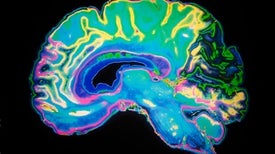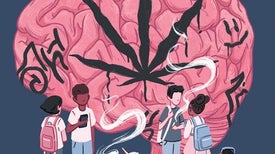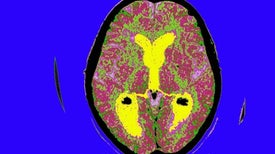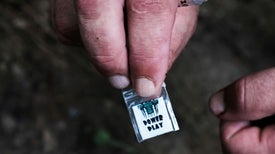
Fractions: Where It All Goes Wrong
Why do Americans have such trouble with fractions—and what can be done?

Why do Americans have such trouble with fractions—and what can be done?

By listening to the calls of their brethren, chimps seem to be able to understand the mind-sets and perspectives of other chimps. Jason Goldman reports.

Journalist Erik Vance talks about his first book, Suggestible You: The Curious Science of Your Brain’s Ability to Deceive, Transform and Heal.

How much should we worry?

Is a dog here like a dog there?

Speakers at a meeting on animal consciousness dive into a deep ethical debate

Researchers have studied eye-tracking and home videos for new insights

Poor-quality sleep may heighten behaviors including hyperactivity, compulsions and aggressiveness

The Bryde's whale has come up with a passive but more efficient feeding strategy in the hypoxic waters of the Gulf of Thailand.

The billionaire philanthropist’s contribution will be followed by another $50 million in start-up ventures

Unusual gait, clumsiness and other motor difficulties are not just limited to kids with the disorder

Over lunch, a philosopher and suburban dad tries to describe the highest state of mystical consciousness

We want to help kids become better observers, but some of our natural cognitive shortcuts mean that we need to give ourselves reasons to pay attention

The main way the disease works is to disrupt communication between neurons, the specialized cells that process and transmit electrical and chemical signals between regions of the brain

Volunteers' use of certain words predicted stress-related changes in gene expression better than their self-reported feelings

When people don't notice fear in dogs, it can mean trouble

The young animals crowdsource the pitch of their calls from colony members

Having parents present is crucial during an infant’s first weeks of development—but institutions that train physicians don’t always seem to care ...

Geotagged tweets using slang like “dummies,” “Captain Cody” or other drug handles could help pinpoint clusters of opioid problems more quickly than traditional methods do...

Narcissism and self-esteem have very different developmental pathways and outcomes
Support science journalism.

Thanks for reading Scientific American. Knowledge awaits.
Already a subscriber? Sign in.
Thanks for reading Scientific American. Create your free account or Sign in to continue.
Create Account